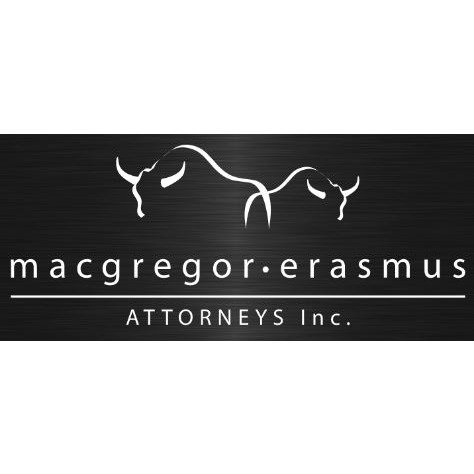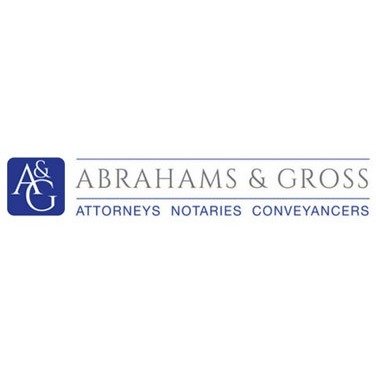Best Energy Regulatory Law Lawyers in Cape Town
Share your needs with us, get contacted by law firms.
Free. Takes 2 min.
List of the best lawyers in Cape Town, South Africa
About Energy Regulatory Law in Cape Town, South Africa
Energy Regulatory Law in Cape Town, South Africa is a specialized field that encompasses the legal frameworks, policies, and regulations governing the generation, distribution, and consumption of energy. This includes electricity, renewable energy sources such as solar and wind, as well as fossil fuels. The sector is heavily regulated to ensure the reliable supply of energy, fairness in the market, environmental protection, and compliance with both national and municipal laws. With the ongoing shift towards sustainable energy and increasing participation from private companies, understanding the legal landscape is more important than ever for businesses, investors, and individuals involved in the energy sector in Cape Town.
Why You May Need a Lawyer
There are several situations where seeking legal advice in Energy Regulatory Law is crucial. Some common scenarios include:
- Obtaining licenses and permits for energy generation, distribution, or trading
- Compliance with national and local regulatory requirements
- Disputes involving contracts with utilities or between private energy producers and consumers
- Land use and environmental compliance for energy projects
- Negotiating Power Purchase Agreements (PPAs)
- Challenges pertaining to electricity tariffs or municipal bylaws
- Dealing with the legal aspects of renewable energy projects, including incentives and grid access
- Understanding government incentive schemes or procurement processes like the Renewable Energy Independent Power Producer Procurement Programme (REIPPPP)
Because Energy Regulatory Law is complex and subject to frequent policy changes, a lawyer can help navigate these challenges, ensure compliance, and protect your interests.
Local Laws Overview
Cape Town operates within the broader national framework set by South Africa’s energy laws, but with specific regional regulations and priorities. The principal national statute is the Electricity Regulation Act 4 of 2006, which is implemented by the National Energy Regulator of South Africa (NERSA). The Department of Mineral Resources and Energy (DMRE) is the overarching policy-maker.
Other key pieces of legislation and regulatory mechanisms relevant to Cape Town include:
- Municipal Bylaws governing small-scale embedded generation, solar PV installation, and grid feed-in
- The Integrated Resource Plan (IRP) which guides South Africa’s energy mix and projections
- The National Environmental Management Act influencing environmental permitting for energy projects
- Regulatory requirements for electricity tariffs and consumer protection in municipal distribution
- Procurement policies for public-private energy projects (e.g., REIPPPP)
The City of Cape Town also implements its own policies to address energy security and to promote renewable energy generation by residents and businesses. Thus, compliance can require navigating both national and local procedures.
Frequently Asked Questions
What is the process for obtaining a license to generate electricity in Cape Town?
Most large-scale generation requires a license from NERSA. However, small-scale embedded generation (SSEG), like rooftop solar for personal or business use, may be subject to exemption if it meets certain capacity and technical requirements. Registration with the City of Cape Town is generally necessary.
Do I need approval to install solar panels on my property?
Yes, installing solar PV systems typically requires municipal approval to ensure safety and compliance with local bylaws. Connection to the municipal grid, especially with feed-in tariffs, involves additional registration and adherence to technical standards.
Are there incentives or rebates for renewable energy installations in Cape Town?
There may be periodic municipal or national incentives for adopting renewable energy, such as small subsidies or feed-in tariffs. Availability and terms can change, so check with the City of Cape Town or NERSA for current offerings.
Who regulates electricity tariffs in Cape Town?
NERSA regulates the broader tariff frameworks, but the City of Cape Town determines and approves tariffs for municipal electricity supplied to end-users, subject to NERSA review and approval.
Can a business or household legally sell electricity back to the grid?
Yes, under certain conditions, surplus electricity generated (for example, from solar PV) can be sold back to the municipal grid. Registration, technical compliance, and a signed agreement with the municipality are required.
What environmental approvals are required for new energy projects?
Most significant energy projects require environmental impact assessments and permits under national environmental laws. This process ensures that new projects do not harm the environment and comply with the National Environmental Management Act.
What is the role of the Renewable Energy Independent Power Producer Procurement Programme (REIPPPP)?
REIPPPP is a national programme that facilitates private investment in renewable energy projects through a transparent bidding and procurement system, creating opportunities for independent power producers in Cape Town and nationwide.
What are common legal disputes in the energy sector?
Disputes often involve contract interpretation, power purchase agreement enforcement, tariff disagreements, grid connection delays, and issues related to land use or environmental compliance.
What steps can I take if I believe a tariff increase is unfair?
You may file a complaint with the City of Cape Town’s electricity department, escalate unresolved issues to NERSA, or, if necessary, seek legal intervention to challenge the process or calculation.
How can I ensure ongoing compliance as a private energy producer?
Regularly consult legal and regulatory updates, maintain clear records, comply with reporting and safety standards, and secure professional legal advice to keep pace with evolving laws and municipal policies.
Additional Resources
If you require more information or support, consider consulting the following resources:
- City of Cape Town Electricity Services Department: For municipal registration, permits, and tariff queries
- National Energy Regulator of South Africa (NERSA): For licensing, regulations, and complaints
- Department of Mineral Resources and Energy (DMRE): For policies and legislative updates
- South African Renewable Energy Council (SAREC): For insights and advocacy in renewable energy
- Legal Practice Council of South Africa: To find a qualified attorney
Next Steps
If you need legal assistance regarding Energy Regulatory Law in Cape Town, it is advisable to:
- Clarify the nature of your issue, whether it involves licensing, compliance, contracts, or disputes
- Collect all relevant documentation, such as contracts, correspondence, permits, and municipal notices
- Identify and contact a lawyer specializing in energy or regulatory law, ideally with experience in Cape Town’s jurisdiction
- Schedule a consultation to discuss your situation and receive tailored legal advice
- Leverage the additional resources listed above to supplement your understanding and preparation
Taking a proactive approach and consulting a knowledgeable legal specialist early can prevent regulatory pitfalls and support the successful achievement of your energy-related objectives.
Lawzana helps you find the best lawyers and law firms in Cape Town through a curated and pre-screened list of qualified legal professionals. Our platform offers rankings and detailed profiles of attorneys and law firms, allowing you to compare based on practice areas, including Energy Regulatory Law, experience, and client feedback.
Each profile includes a description of the firm's areas of practice, client reviews, team members and partners, year of establishment, spoken languages, office locations, contact information, social media presence, and any published articles or resources. Most firms on our platform speak English and are experienced in both local and international legal matters.
Get a quote from top-rated law firms in Cape Town, South Africa — quickly, securely, and without unnecessary hassle.
Disclaimer:
The information provided on this page is for general informational purposes only and does not constitute legal advice. While we strive to ensure the accuracy and relevance of the content, legal information may change over time, and interpretations of the law can vary. You should always consult with a qualified legal professional for advice specific to your situation.
We disclaim all liability for actions taken or not taken based on the content of this page. If you believe any information is incorrect or outdated, please contact us, and we will review and update it where appropriate.
















